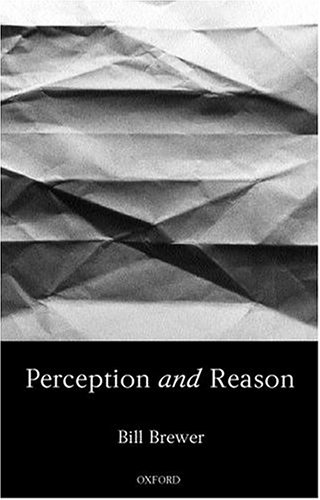

Most ebook files are in PDF format, so you can easily read them using various software such as Foxit Reader or directly on the Google Chrome browser.
Some ebook files are released by publishers in other formats such as .awz, .mobi, .epub, .fb2, etc. You may need to install specific software to read these formats on mobile/PC, such as Calibre.
Please read the tutorial at this link. https://ebooknice.com/page/post?id=faq
We offer FREE conversion to the popular formats you request; however, this may take some time. Therefore, right after payment, please email us, and we will try to provide the service as quickly as possible.
For some exceptional file formats or broken links (if any), please refrain from opening any disputes. Instead, email us first, and we will try to assist within a maximum of 6 hours.
EbookNice Team

Status:
Available4.4
39 reviews
ISBN 10: 0198235674
ISBN 13: 9780198235675
Author: Bill Brewer
Bill Brewer sets out an original view of the role of conscious experience in the acquisition of empirical knowledge. Most epistemology of perception takes a person's possession of beliefs about the mind-independent world for granted and goes on to ask what further conditions these beliefs must meet if they are to be cases of knowledge. Brewer argues that this approach is completely mistaken. Perceptual experiences must provide reasons for empirical beliefs if there are to be any determinate beliefs at all about particular objects in the world. The crucial epistemological role of experience lies in its essential contribution to the subject's understanding of certain perceptual demonstrative contents, simply grasping which provides him with a reason to endorse them in belief. Brewer explains in detail how this is so, defends his position against a wide range of objections, and compares and contrasts it with a number of influential alternative views in the area. He brings out its connection with Russell's Principle of Acquaintance, and examines its conseqences for the compatibility of content externalism with an adequate account of self-knowledge. Perception and Reason offers a fresh approach to epistemology, turning away from the search for necessary and sufficient conditions for knowledge and working instead from a theory of understanding in a particular area.
PART I. PERCEPTUAL EXPERIENCES PROVIDE REASONS
1 Historical–Epistemological Context
2 Belief and Experience
2.1 Preliminaries
2.2 The Strawson Argument
2.3 Refinements
3 Experience and Reason
3.1 The Switching Argument
3.2 Knowledge by Description
3.3 Conceptual Redeployment
3.4 Natural Kinds and Proper Names
3.5 Are There Unitary Concepts of Mind-Independent Things?
4 Epistemological Consequences and Criticisms
4.1 Reliabilism
4.2 Classical Foundationalism
4.3 Classical Coherentism
4.4 Conclusion
PART II. THE RATIONAL ROLE OF PERCEPTUAL EXPERIENCES
5 Reasons Require Conceptual Contents
5.1 The Basic Argument
5.2 Possible Counterexamples
5.3 Non-Conceptual Experiential Content Is Unmotivated
6 The Rational Role of Perceptual Experiences
6.1 Objective Demonstratives
6.2 Epistemic Openness
6.3 Clarifications
7 The Epistemological Outlook
7.1 Foundationalism and Coherentism
7.2 Imagination
7.3 Error and Scepticism
7.4 Further Objections
8 Developments and Consequences
8.1 Non-Demonstrative Perceptual Knowledge
8.2 Russell's Principle of Acquaintance
8.3 Externalism and A Priori Knowledge
Tags: Bill Brewer, Perception, Reason